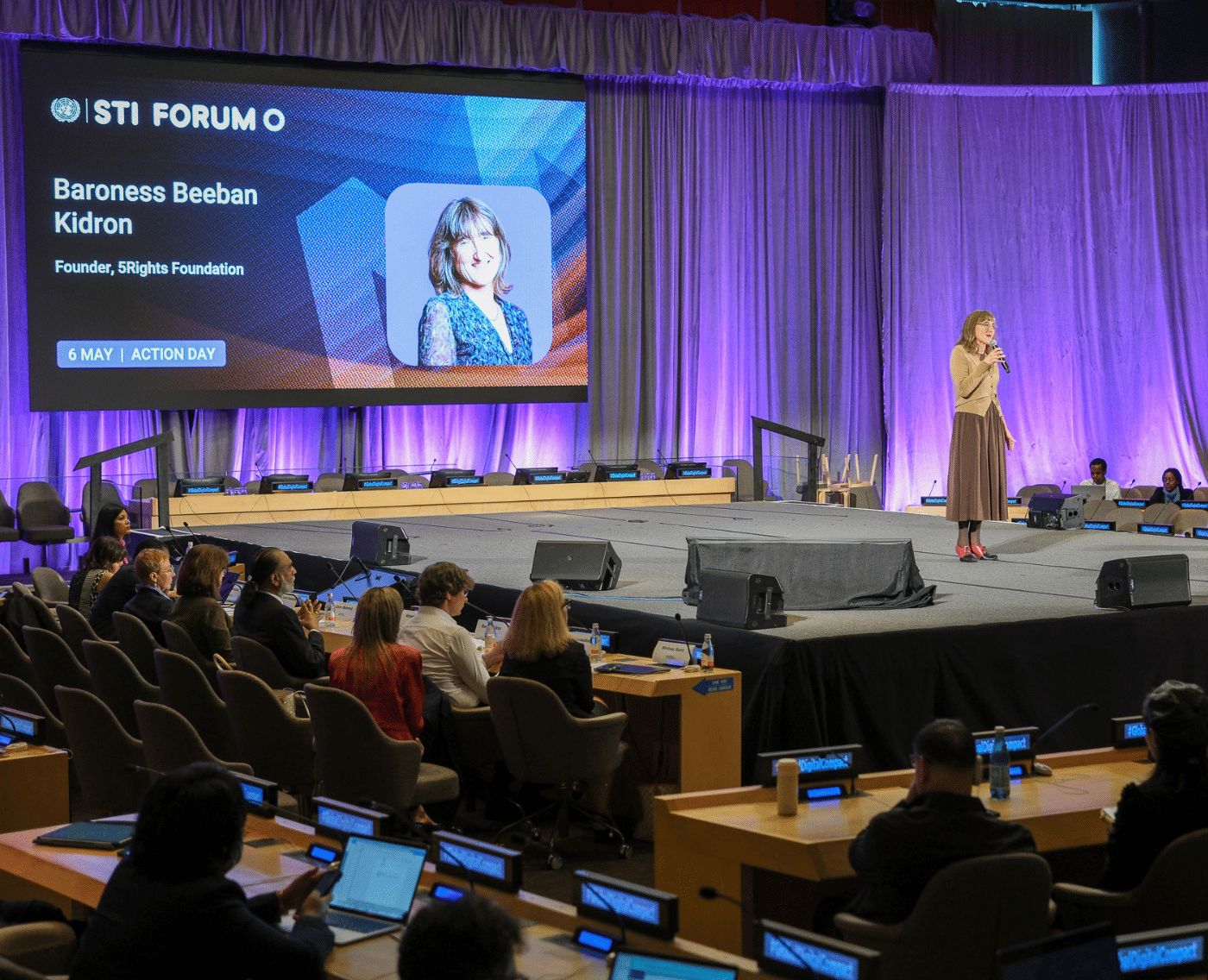“A different digital settlement for children” – implementation must follow Global Digital Compact commitments
From the floor of the UN STI Forum, Baroness Beeban Kidron urged world leaders to build on the Global Digital Compact and renew their commitment to a digital future that works for children.

This week’s UN Science, Technology and Innovation Forum marked the forum’s first gathering since the adoption of the Global Digital Compact, a landmark agreement aimed at securing a better digital future for all by recommitting to protect and respect children’s rights in the digital world. Opening the Forum’s Action Day, 5Rights Chair and Founder Baroness Beeban Kidron urged UN member states to honour their commitments and translate the Compact’s pledges into tangible steps towards a better digital environment for children.
Adopted more than eight months ago at the Summit of the Future, States committed in the Global Digital Compact to “strengthen legal and policy frameworks to protect the rights of the child in the digital space” and to “prioritise national online child safety policies and standards” by 2030. These are not small ambitions. They demand coherent regulation, meaningful implementation, and international alignment on approaches that recognise the additional vulnerabilities and diverse circumstances of children globally.
“The language of legal frameworks, policies and standards may be dry, but it embodies the desire of millions of children, parents, and policymakers – who alongside the UN family – want a different digital settlement for children.”
Baroness Beeban Kidron, 5Rights Founder and Chair
What that settlement looks like is already beginning to take shape. Frameworks such as UNCRC General comment No. 25, the African Union Child Online Safety and Empowerment Policy, and Indonesia’s Government Regulation on Child Protection demonstrate that it is feasible to create the digital world children deserve. Meanwhile, as AI increasingly shapes all aspects of children’s lives, 5Rights’ Children & AI Design Code provides a protocol to ensure AI systems are designed and evaluated with their best interests in mind.
Whether the commitments of the Global Digital Compact will meaningfully improve children’s rights in the digital world depends on what happens next. The tools exist. The timeline is set. What’s needed now is political resolve and a renewed commitment to children’s flourishing in the digital age.
